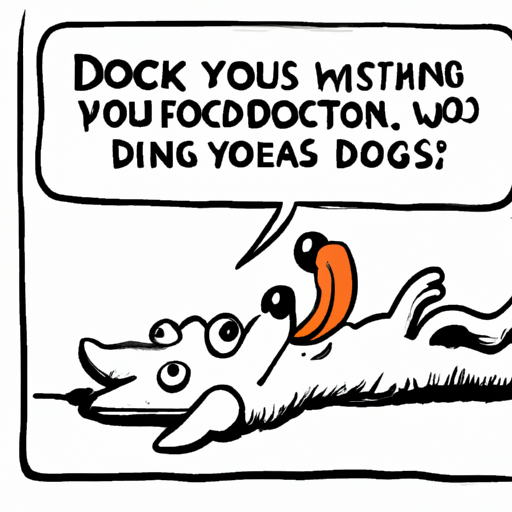It’s an everyday experience for dog owners – you lay down on the couch, and suddenly your furry friend is there, licking your face enthusiastically. You might wonder, why do dogs lick your face when you lay down? This seemingly strange behavior is an integral part of canine communication and can be attributed to a variety of reasons ranging from affection and grooming to taste preferences.
Table of Contents
- Affection and Bonding
- Taste Preference
- Grooming and Care
- Seeking Attention
- Submission and Respect
- Health Concerns
- Frequently Asked Questions
Key Takeaways
- Dogs often lick faces to show affection and establish bonding with their owners.
- Taste preference can also be a reason why dogs lick your face.
- Canines may lick as a form of grooming or to show care.
- Licking can be a way for dogs to grab your attention.
- Dogs may lick to show submission and respect.
- Excessive licking can sometimes indicate health concerns.
Affection and Bonding
Dogs are social creatures with a strong sense of family and pack hierarchy. Licking is one way they express their affection and establish bonding with their owners. When you lay down, your face becomes more accessible to them, and they take this opportunity to show their love.
According to American Kennel Club, dogs often lick their pack members as a sign of affection, similar to how humans hug and kiss their loved ones. So, feel loved when your dog licks your face when you lay down!
Taste Preference
Sometimes, dogs lick your face simply because they like the taste. Your skin secretes sweat and oils, which can be appealing to your dog’s taste buds. Licking your face can also be a way for your dog to explore the world, as they experience it largely through their sense of taste and smell.
Grooming and Care
In the wild, canines often groom each other as a way of showing care. Your dog might be carrying this instinctual behavior by licking your face, especially when you lay down and become more accessible. This is a typical behavior seen in mother dogs, who lick their puppies to clean them and stimulate their bodily functions. For more information about dog’s grooming habits, check out this article on OneTopDog.
Seeking Attention
Licking can also be a way for dogs to grab your attention. When you’re lying down, your dog might see it as an opportunity to engage with you. If they start licking your face and you respond by giving them attention, they quickly learn that this behavior has a rewarding outcome. For more tips on managing your dog’s attention-seeking behavior, visit this guide on OneTopDog.
Submission and Respect
In a pack, lower-ranked dogs often lick the faces of higher-ranked members to show submission and respect. Your dog might be replicating this behavior with you, recognizing you as the leader of the pack.
Health Concerns
While occasional face licking is normal, excessive licking can sometimes indicate health concerns. If your dog is licking your face obsessively, it might be a sign of stress, anxiety, or underlying health issues. In such cases, it’s best to consult with a vet. Learn more about dog health and wellness at OneTopDog.
Frequently Asked Questions
-
Is it safe to let dogs lick your face?
While it’s a sign of affection, letting dogs lick your face can sometimes lead to transmission of bacteria or parasites. It’s advisable to maintain good hygiene and ensure your dog is vaccinated and dewormed. -
What to do if my dog is excessively licking my face?
If your dog is obsessively licking your face, it might be a sign of anxiety or health issues. It’s best to consult with a vet in such cases. -
Can I train my dog to stop licking my face?
Yes, with consistent training and positive reinforcement, you can train your dog to stop licking your face.
In conclusion, face licking is a common behavior in dogs that can be attributed to a variety of reasons. Understanding these reasons can help you better communicate with your canine companion and ensure their well-being.



